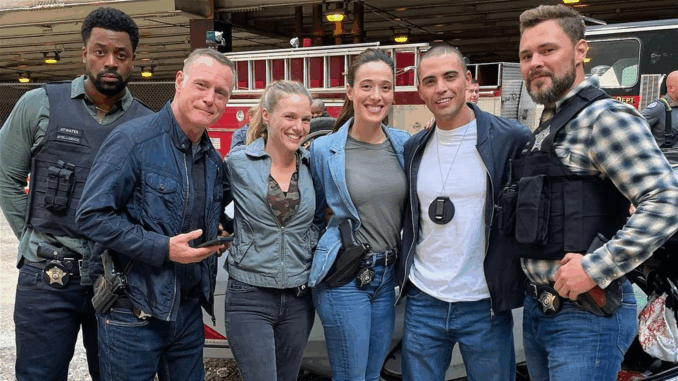
In the concrete canyons and diverse neighborhoods of Chicago, a relentless battle against crime unfolds daily, led by the dedicated but often morally ambiguous officers of the Intelligence Unit. “Chicago P.D.” plunges viewers into the raw, uncompromising world of law enforcement, offering a visceral look at the complex challenges, ethical dilemmas, and profound sacrifices made by those sworn to protect and serve. This isn’t a show about heroes in shining armor; it’s about flawed individuals operating in shades of grey, navigating a city teeming with corruption, violence, and social injustice.
At the heart of “Chicago P.D.” is Sergeant Hank Voight, a character as complex as the city he polices. Voight embodies the show’s core ethos: that sometimes, to fight monsters, you have to become one yourself. His unconventional methods, willingness to bend the rules, and unwavering loyalty to his unit set the tone for the series. Alongside him, detectives like Jay Halstead, Hailey Upton, and Kevin Atwater navigate a world where right and wrong are rarely black and white. The show excels at portraying the psychological toll of police work, from the trauma of witnessing horrific crimes to the burden of making split-second decisions that can alter lives forever. Viewers are exposed to the constant internal conflict faced by these officers, who must balance their commitment to justice with the messy realities of the streets.
The series is lauded for its unflinching portrayal of Chicago’s criminal landscape. From drug rings and gang violence to human trafficking and political corruption, “Chicago P.D.” tackles a wide array of high-stakes cases that often mirror real-world headlines. The show doesn’t shy away from the brutality of crime or the systemic issues that contribute to it, offering a gritty and often disturbing realism that differentiates it from more sanitized police procedurals. The intense action sequences, from high-speed chases to dramatic shootouts, are meticulously choreographed, creating an immersive experience that keeps audiences on the edge of their seats.

Beyond the action, “Chicago P.D.” delves deep into the personal lives of its characters, exploring the impact of their demanding profession on their relationships, mental health, and moral compass. The tight-knit unit functions as a family, providing support and solidarity in a world that often feels isolated and dangerous. However, these relationships are also frequently tested by the stresses of the job, leading to moments of profound emotional resonance and compelling interpersonal drama. The series understands that the personal and professional are inextricably linked, and that the fight against crime extends far beyond the badge.
In a genre often criticized for its simplicity, “Chicago P.D.” stands out for its nuanced exploration of law enforcement in the 21st century. It’s a challenging, thought-provoking series that forces viewers to confront uncomfortable truths about justice, accountability, and the complex nature of policing in a major American city. It’s a testament to the fact that sometimes, the most compelling stories are found not in the pursuit of perfection, but in the gritty struggle for a better, albeit imperfect, world.